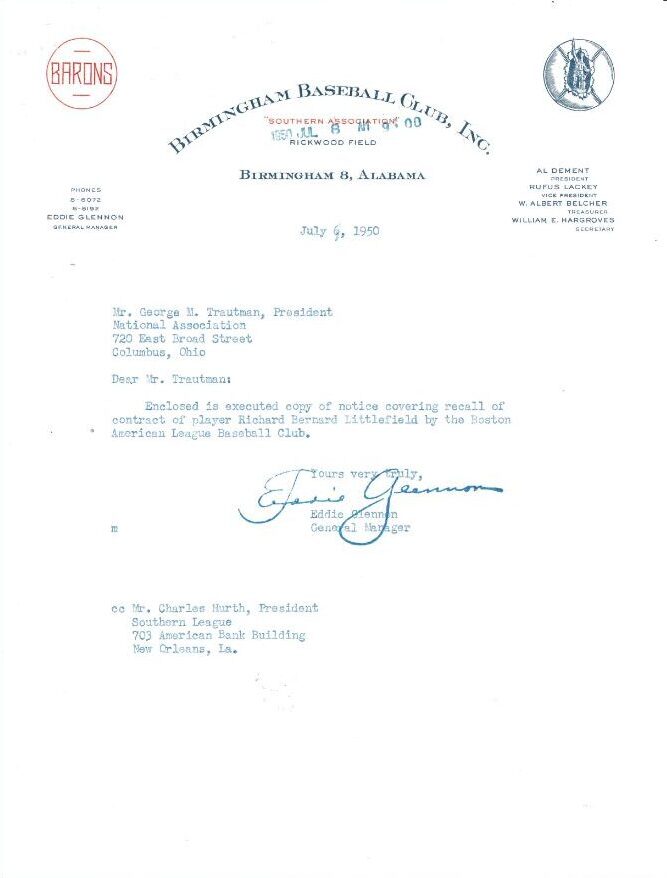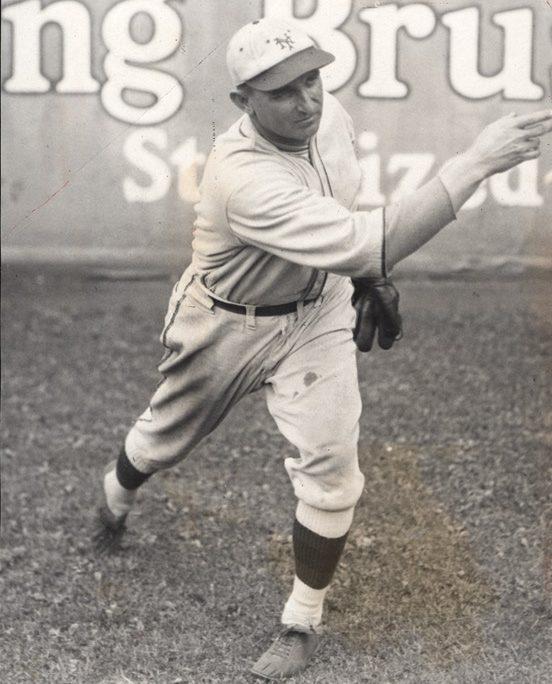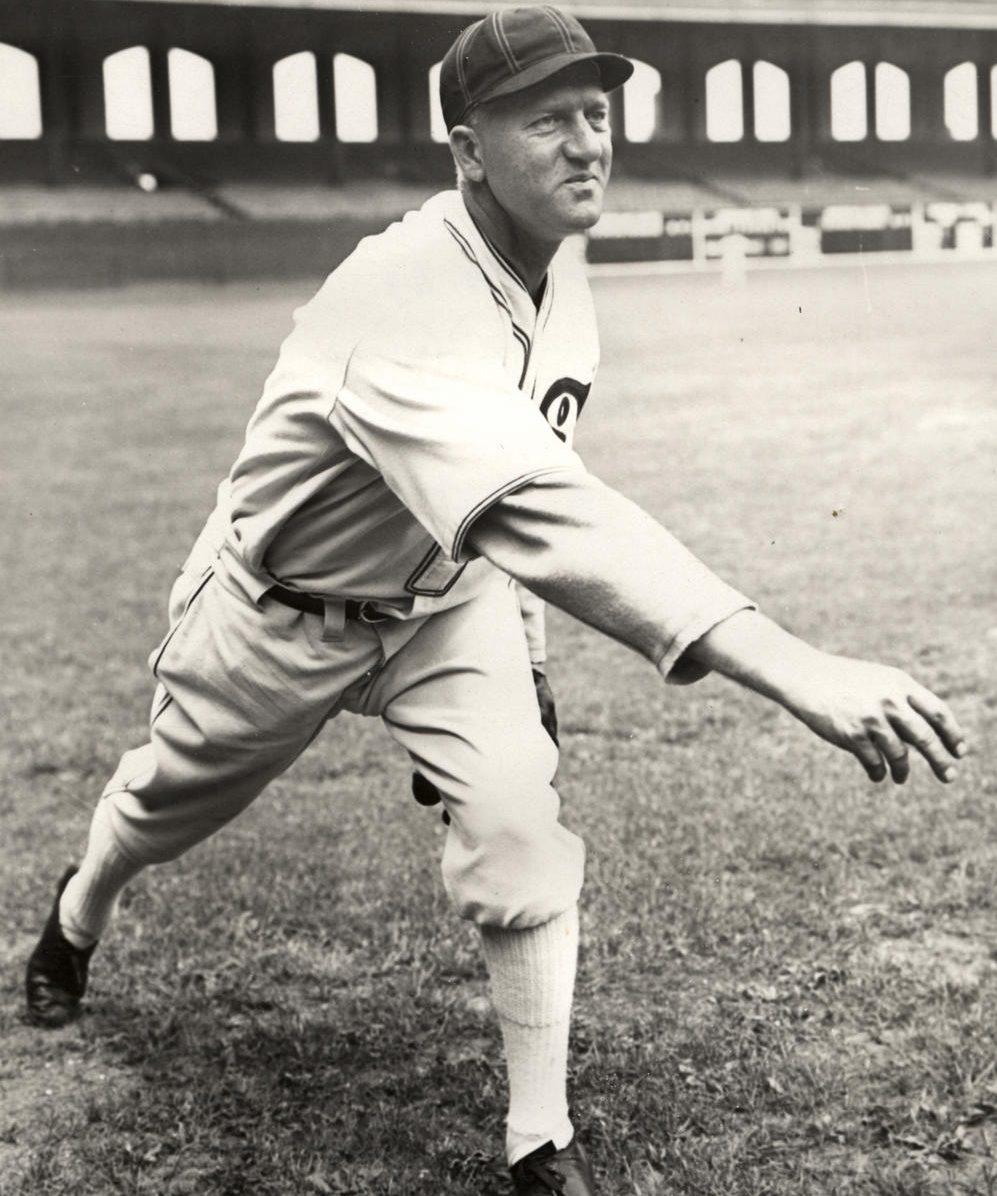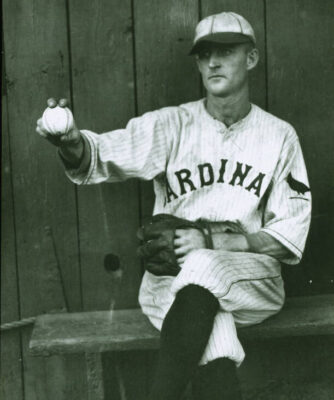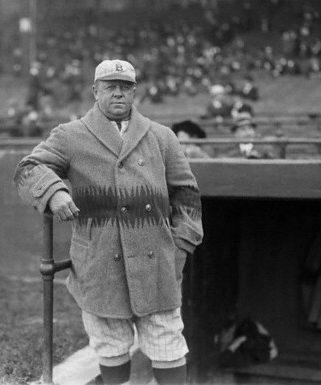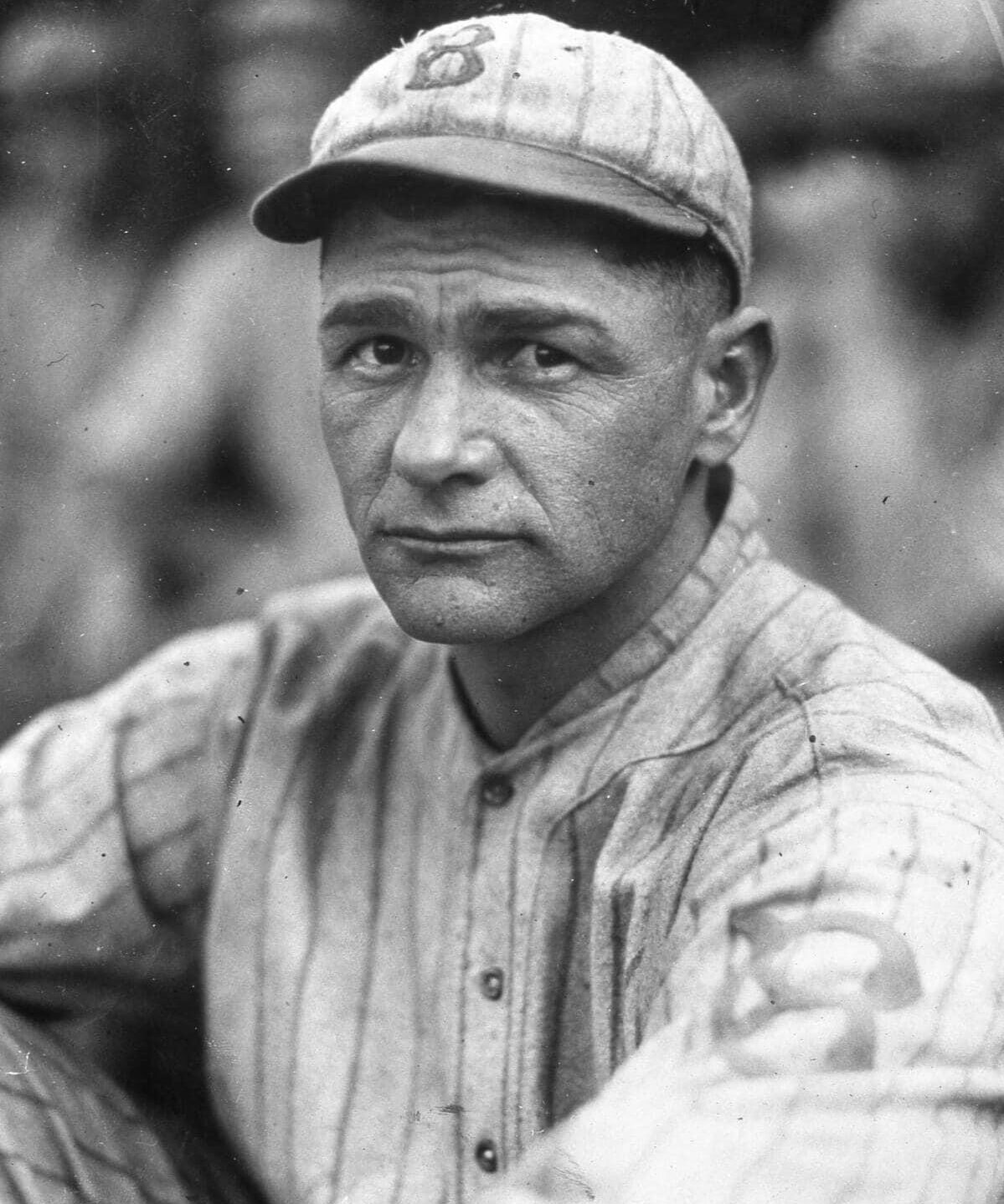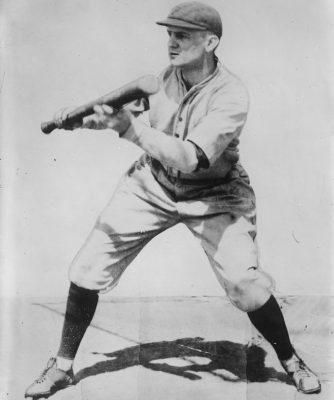Burleigh Grimes
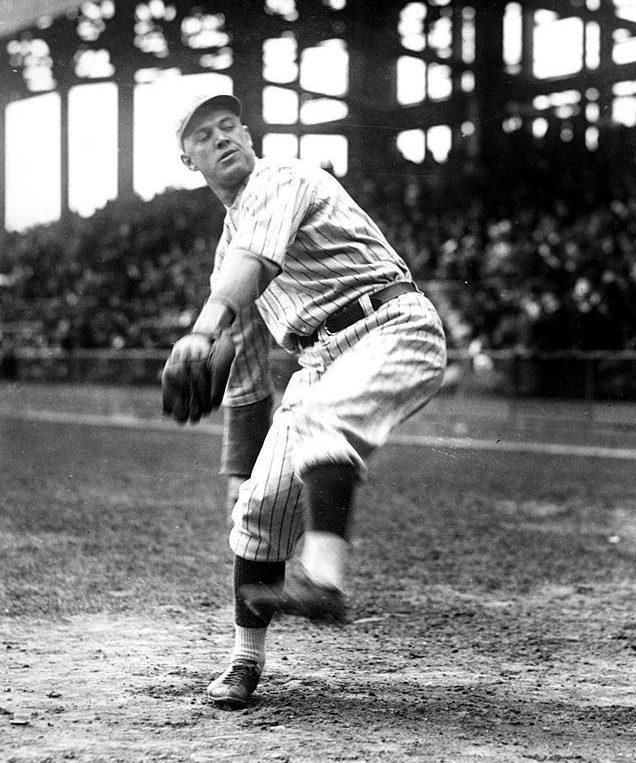
| Birthdate | 8/18/1893 |
| Death Date | 12/6/1985 |
| Debut Year | 1916 |
| Year of Induction | 1964 |
| Teams | Braves, Cardinals, Cubs, Dodgers, Giants, Pirates, Yankees |
| Position | Pitcher |
After banning the spitter in 1920, MLB grandfathered in 17 men allowed to throw it until retirement. Burleigh Grimes was the last legal spitballer.
Leave a commentIn the collection:
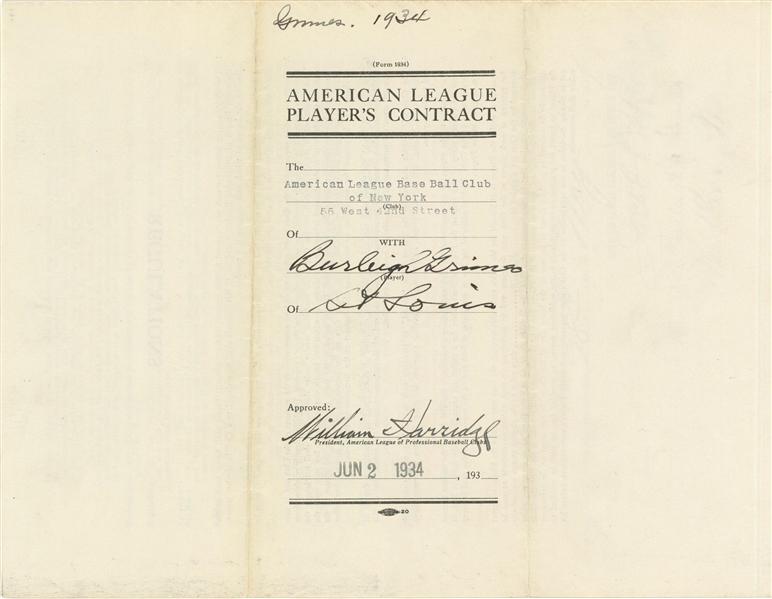
Burleigh Grimes 1934 Yankees contract as the last legal spitballer in American League history
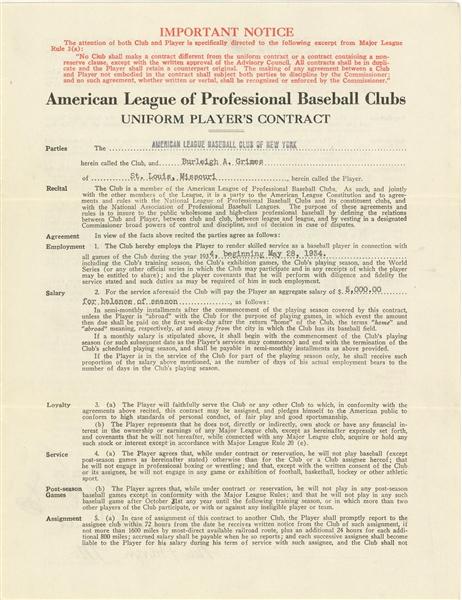
Front page of Burleigh Grimes' 1934 contract as the AL's last legal spitball pitcher
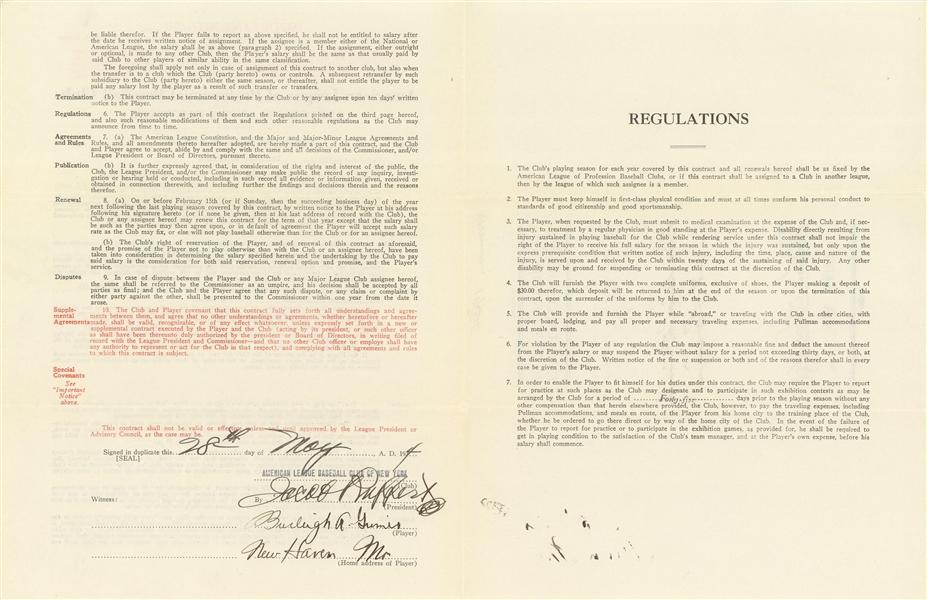
Signature page of Grimes' 1934 Yankee deal as the last AL pitcher to legally throw the spitter
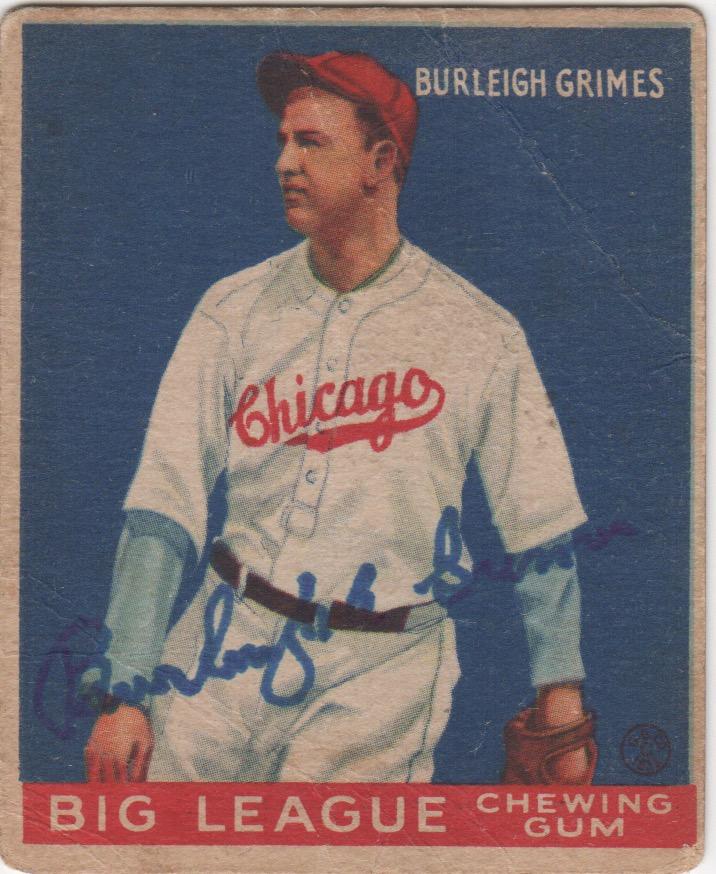
Burleigh Grimes autographed 1933 Goudey
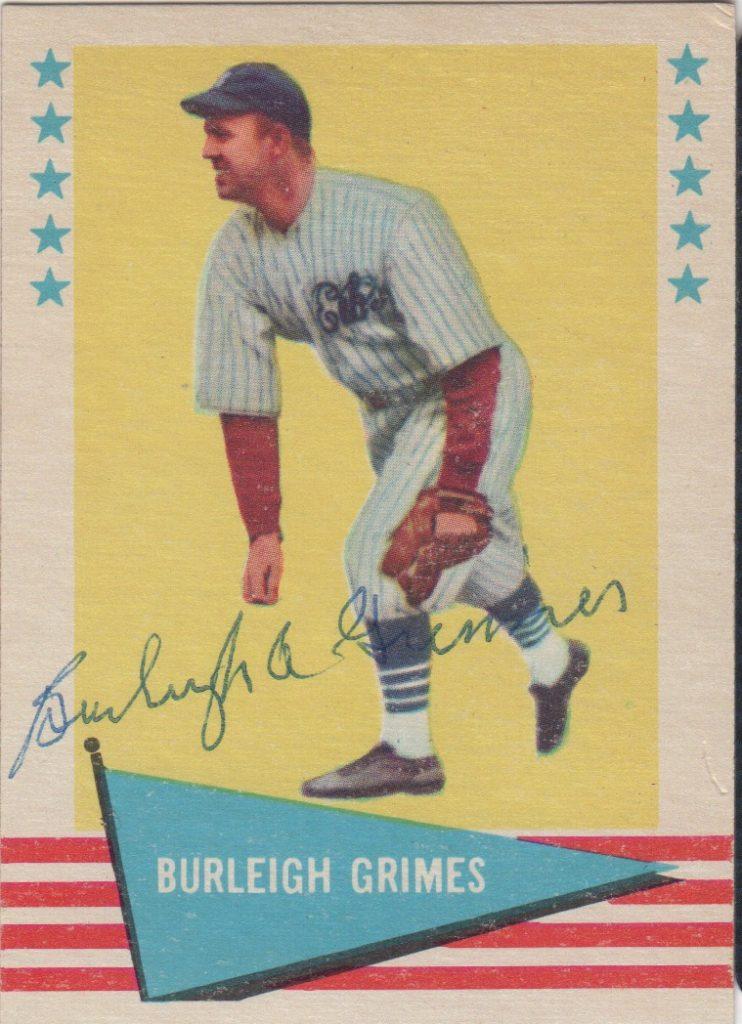
1962 Fleer card autographed by Burleigh Grimes
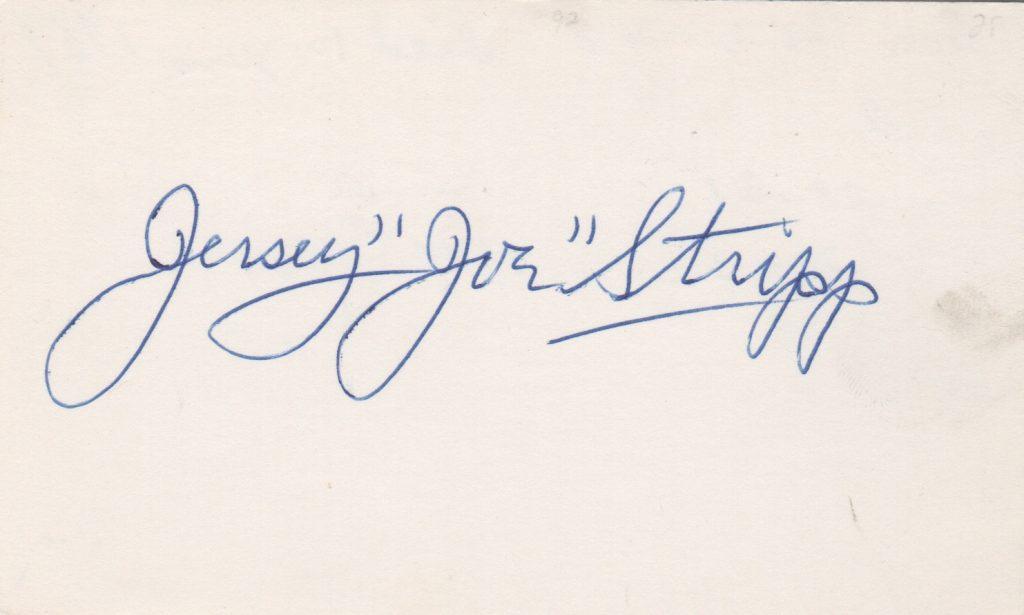
Grimes legally threw the spitball for 15 years after it was banned
